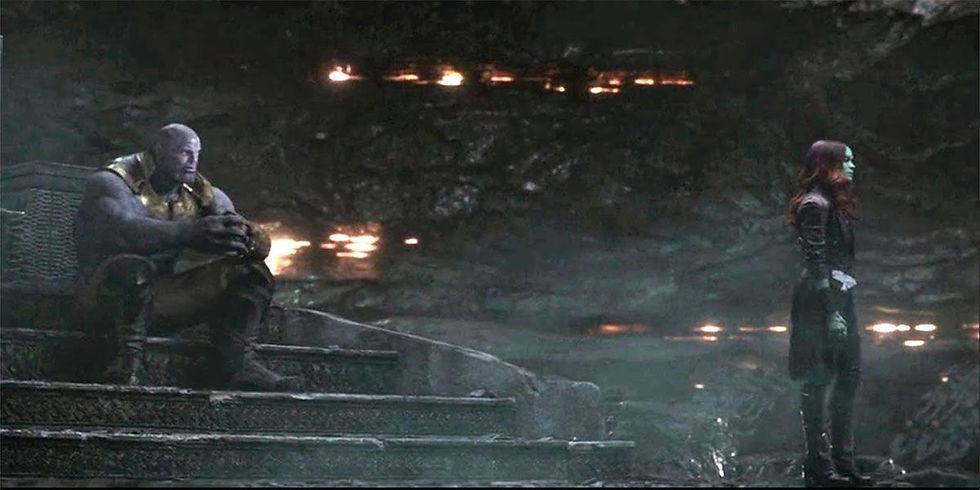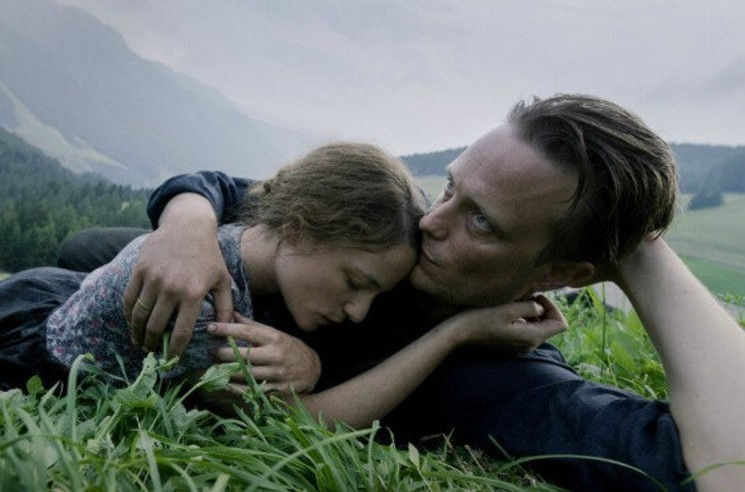Out of the Darkness of Loss, Meadowland Evokes Empathy, Hope and a Blessing
- Fr. Don Woznicki
- Oct 23, 2015
- 5 min read

Shortly after Pope Francis stood on the balcony at St. Peter’s to be introduced to the world as the new Bishop of Rome, he was interviewed for a Jesuit periodical in which he shared his pastoral vision for the church: “I see clearly that the church needs most today is the ability to heal wounds and to warm the hearts of the faithful; it needs nearness, proximity. I see the church as a field hospital after battle,” (America Magazine 9/19/13).
In battle, “It is useless,” says the Pope, “to ask a seriously injured person if he has high cholesterol and about the level of his blood sugars! You have to heal his wounds. Then we can talk about everything else.” In the battle of life, a person seriously wounded by an experience, although mired in sin or addiction or other self- destructive behavior, needs to be triaged – First, given pastoral care to address the wound. Here is where Hollywood can serve a great purpose and films like Meadowland serve as the medic that brings a seriously wounded soul on a stretcher to the field hospital.
Meadowland, a film that had its world premiere at the Tribeca Film Festival on April 17, 2015, dives head first into the deep and dark pit of sorrow and grief of Phil (Luke Wilson) and Sarah (Olivia Wilde) who suffer the excruciating pain of losing their one and only adolescent son, Jesse, to child abduction.
One film critic wrote, “I can’t say I walked out in the best spirits, but, unlike most of the gloomy dramas I’ve seen lately, this is one I wasn’t eager to shake right off and genuinely wanted to consider well after it was over.” To the credit of Writer Chris Rossi, Director Reed Morano and Actress Olivia Wilde, and others who make up the Cast and Crew, Meadowland takes the audience to the edge of an emotional and spiritual edge between hell and a purgatory with hope. Indeed, be ready for an intensely dark film – but through this darkness will shine a light of grace. The late Flannery O’Connor said on dark stories, “The Writer who emphasizes values is very likely to take the darkest view of all…the sharper the light of faith, the more glaring are apt to be the distortions the writer sees in the life around him.”
The film opens with Phil and Sarah driving in a car, content and in love. The expression of this love (4-5 year-old son, Jesse) is riding happily and securely in the back seat. Phil pulls into a gas station for Jesse’s bathroom break. Jesse enters the bathroom alone and soon, out of view of the parents, Jesse is abducted by an unseen predator. Phil and Sarah’s content life change in an instant.
The story then fast forwards to a year later when we begin to see the effects of this trauma inflicted on Jesse’s parents –They deal with it in different ways. Phil, a NYC Police Officer, channels his grief down into the basement of a local church where a grief support group meets. But the poison of anger begins to direct his grief down another path as he entertains the thought, if given the chance, of a revenge kill of his son’s abductor. He also encourages this idea to a fellow support group member (who suffers a similar wound inflicted over the death of his daughter killed by a drunk driver) and even offers to help using his influence as a policeman.
On the other hand, Sarah, an elementary school teacher, journeys down a path of increasing madness. Herein lies the genius of the collaborative efforts of Writer Chris Rossi, Director Reed Morano, and Actress Olivia Wilde. There are not a few stories of parents stricken with grief over the loss of their child. Meadowland offers a unique story that impressively focuses on the grief of a mother. Chris Rossi succeeds to supply the template for a story that leads the audience into the depths of the grieving soul of woman and empathize with her pain. One year after the trauma, Rossi introduces Sarah’s sickness of grief to the audience as it begins to take its toll through self medicating with lithium and alcohol. The temperature of Sarah’s sickness rises with the occasion of her being an elementary school teacher. Sarah begins to take on the destructive behavior of one of her students who also is wounded by the pain of a broken family life, coping through “cutting” and listening to dark music. Sarah’s wounded motherly soul wanders and yearns to be attached to a boy to care for – and she finds one at the school with Adam (Ty Simpkins), an emotionally troubled and socially challenged boy who suffers isolation and abuse from his peers. As Sarah’s sickness goes untreated, her behavior with Adam becomes obsessive to the point of a feverish climax.
Reed Morano chalks up another example of the fine contributions an increasing number of women are making (and will continue to make) in Film Direction and Producing. Morano, known for her accomplishments in cinematography (Frozen River – 2008 Sundance Grand Jury Prize, Little Birds, Kill Your Darlings, Skeleton Twins), also picks up the camera work on Meadowland to contribute to the films notable texture and character feel.
Olivia Wilde provides haunting shape, form and depth – soul, to Sarah’s complex character. Noteworthy is how Wilde portrays Sarah’s "post-abduction face." A mother’s eyes seem to be naturally filled with gentleness and unending love for her child – especially a son (“Whom Mothers' have a special bond with”). Sarah’s motherly face, once radiant before the abduction, now bears the heaviness of sorrow in her eyes. Her eyes are now lined with bags from loss of sleep due to the constant wonder and worry of “How is Jesse? Where is Jesse?” and as her madness progresses, those eyes seem to reveal an empty soul.
Kudos to Olivia for taking this so important and meaningful role! Olivia, you may not know the full impact you have had (and will have) on grieving mothers who see this.
Our modern times has been saturated with enough devastating news to make our world tired, if not numb, to caring for the afflicted around us. Chris Rossi calls this “compassion fatigue.” He has presented this story for the purpose of regenerating empathy in people, particularly to find solidarity with those suffering from loss. This is important for us as spiritual human beings, for as one Beatitude says, “Blessed are those who mourn; for they will be comforted!” [Matt. 5:4] - And Jesuit educated Rossi doesn’t leave you there but provides a light of hope in this darkness, though a slight flicker, but grace nonetheless!
For those looking in on Hollywood and wondering if it will ever be redeemed, Chris Rossi, Reed Morano, Olivia Wilde and fellow cast and crew are proving how powerful a role Hollywood can play in helping to redeem humanity! I leave you with a quote from another good and inspired writer, St. Paul, as he expressed how God holds up the light of hope from the power of the Cross of Christ to all who open themselves up to it, especially when facing a deep and dark loss: “Where O death is your power, where is your sting!” [1 Cor 15:55]
[Mature Audiences - Rated R for language, a scene of strong sexuality and some drug use]



























Comments